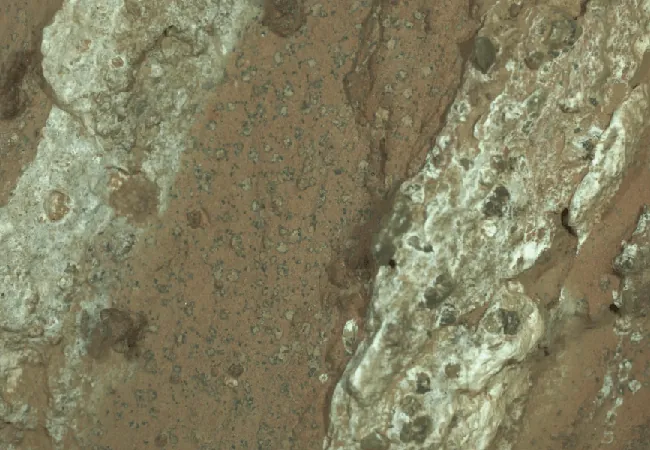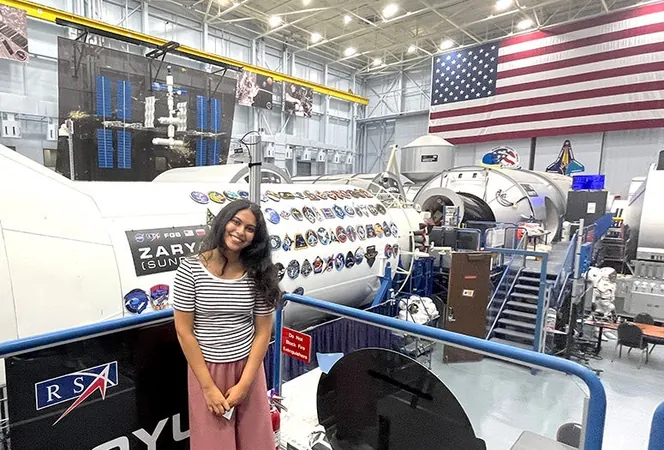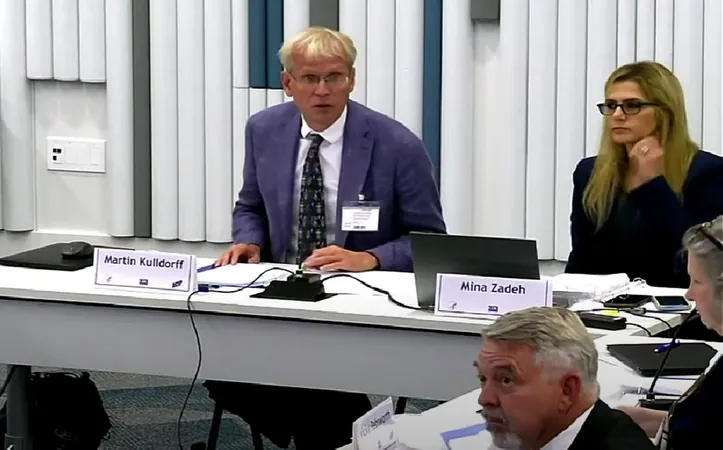
Bold Move: Canada Stands Firm on Palestinian Statehood Despite Trump’s Threats
2025-09-24
Author: Emily
Carney's Stand for Palestine
In a daring response to U.S. President Donald Trump's warnings, Prime Minister Mark Carney staunchly defended Canada's recognition of Palestinian statehood. Trump had cautioned that this decision could jeopardize ongoing trade negotiations, yet Carney remained undeterred, emphasizing that Canada pursues an independent foreign policy rooted in its values.
Shared Goals but Different Paths
Despite Trump's opposition to Palestinian recognition, Carney asserted that both leaders share the ultimate goal of peace in the Middle East. Trump, a vocal supporter of Israel, recently blocked a visa for Palestinian Authority President Mahmoud Abbas, further signaling the strain in U.S.-Palestine relations.
Tariffs and Trade Tensions
Trump has previously warned that acknowledgment of Palestine could complicate trade discussions, especially after imposing significant tariffs on Canadian goods, including 50% on steel and aluminum. This coercion, however, did not sway Canada, which Carney claims has one of the most favorable trade deals in the world with the U.S., covering over 85% of their trade free of tariffs.
Canada Stands with Allies
In a united front, Canada joined nations like Britain, France, and Portugal in recognizing Palestinian statehood—countries that have already maneuvered favorable trade agreements with Trump. Despite strained trade relations, Carney is committed to a two-state solution, advocating for a peaceful coexistence between Palestine and Israel.
A Conditional Recognition
Carney's recognition comes with conditions: democratic reforms in Palestine, the release of kidnapped Israelis, disarmament of Hamas, and its exclusion from any future governance of a Palestinian state. This nuanced stance indicates Canada's careful approach to international diplomacy.
Investing in Peace and Governance
As part of its commitment, Canada has pledged $47 million to bolster judicial systems and governance structures in Gaza and the West Bank, highlighting a proactive stance towards contributing to a sustainable peace.
Looking Ahead to Trade Relations
While the current trade discussions with the U.S. have stalled, Carney remains optimistic about future negotiations. He hinted at potential strategies to enhance trade relations and mentioned ongoing discussions with China to resolve trade disputes, aiming for future dialogue with China's leadership.
Conclusion: Carney's Vision for Canada
Carney's bold steps in recognizing Palestinian statehood not only mark a significant shift in Canadian foreign policy but also position Canada as a key player in the quest for peace in the Middle East, all while navigating the complex landscape of trade and international relations.









 Brasil (PT)
Brasil (PT)
 Canada (EN)
Canada (EN)
 Chile (ES)
Chile (ES)
 Česko (CS)
Česko (CS)
 대한민국 (KO)
대한민국 (KO)
 España (ES)
España (ES)
 France (FR)
France (FR)
 Hong Kong (EN)
Hong Kong (EN)
 Italia (IT)
Italia (IT)
 日本 (JA)
日本 (JA)
 Magyarország (HU)
Magyarország (HU)
 Norge (NO)
Norge (NO)
 Polska (PL)
Polska (PL)
 Schweiz (DE)
Schweiz (DE)
 Singapore (EN)
Singapore (EN)
 Sverige (SV)
Sverige (SV)
 Suomi (FI)
Suomi (FI)
 Türkiye (TR)
Türkiye (TR)
 الإمارات العربية المتحدة (AR)
الإمارات العربية المتحدة (AR)